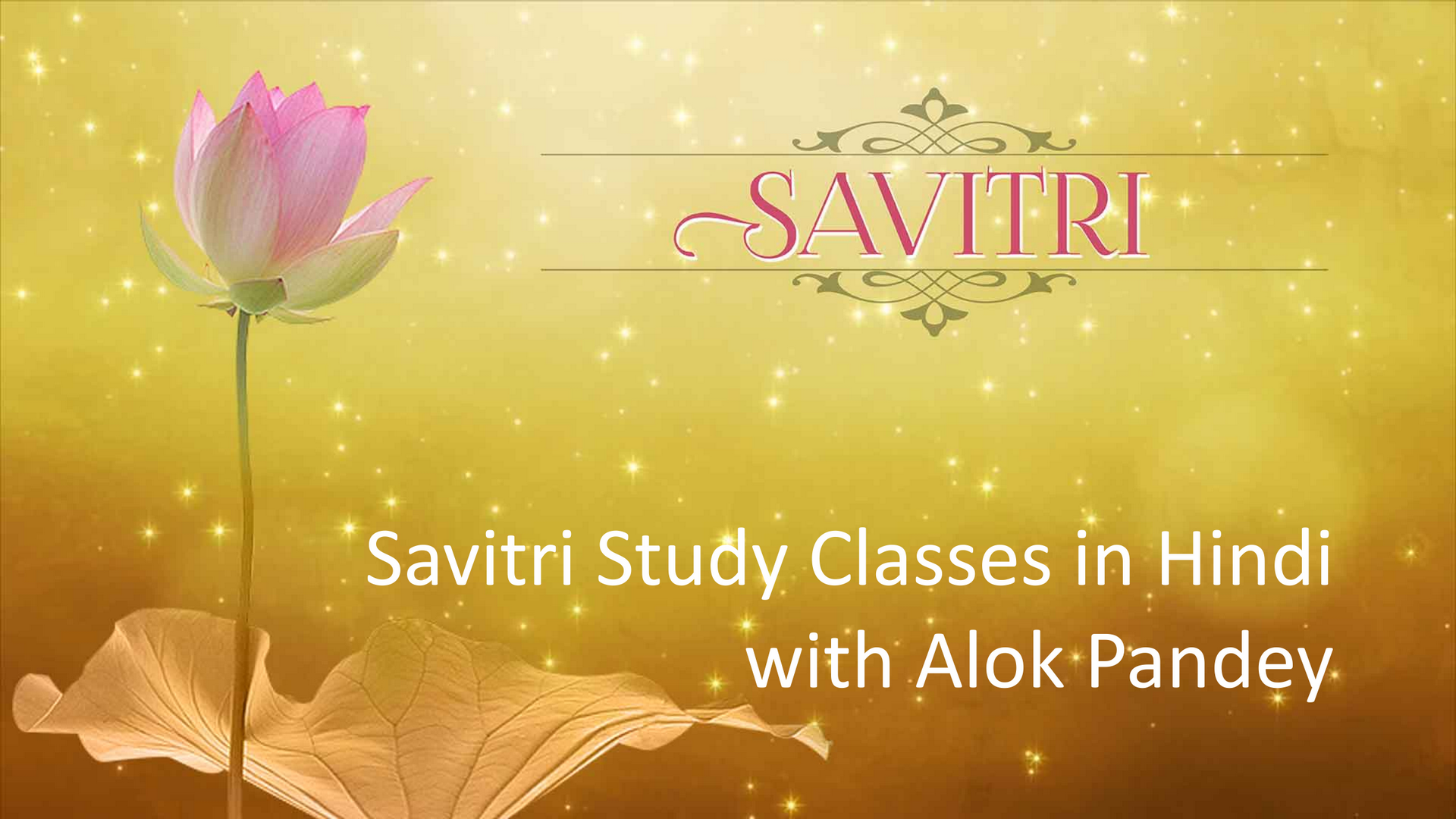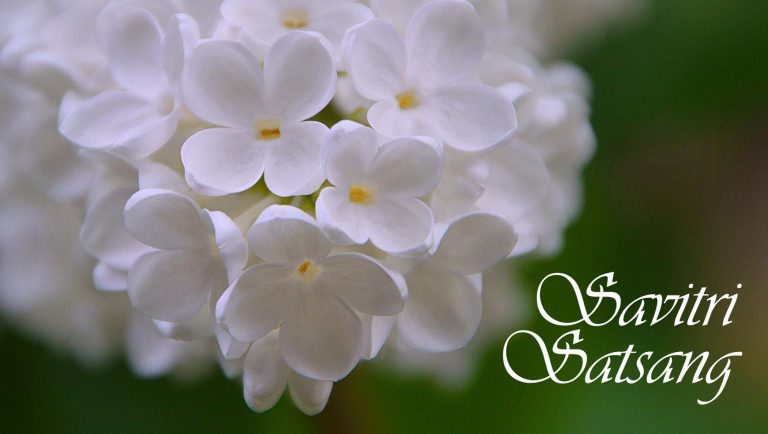Savitri Class in Hindi with Alok Pandey
Savitri Book Six: The Book of Fate, Canto Two: The Way of Fate and the Problem of Pain
Man seeks for Freedom and Knowledge and Bliss and Power since he is intuitively aware of his divine Origin. However he can take one of the two paths towards this Goal of divine self-fulfillment which alone can heal our suffering definitively. One is the path of the gods that carves its journey through service and endurance, trust and dependence upon the Divine, a gradual and patient unfolding of the godlike nature in him through aspiration, faith and surrender. The other is the path of the Titans, impatient and stormy, driven by self-will and ego.
Till then must life carry its seed of death
And sorrow’s plaint be heard in the slow Night.
O mortal, bear this great world’s law of pain,
In thy hard passage through a suffering world
Lean for thy soul’s support on Heaven’s strength,
Turn towards high Truth, aspire to love and peace.A little bliss is lent thee from above,
A touch divine upon thy human days.
Make of thy daily way a pilgrimage,
For through small joys and griefs thou mov’st towards God.Haste not towards Godhead on a dangerous road,
Open not thy doorways to a nameless Power,
Climb not to Godhead by the Titan’s road.Against the Law he pits his single will,
Across its way he throws his pride of might.
Heavenward he clambers on a stair of storms
Aspiring to live near the deathless sun.He strives with a giant strength to wrest by force
From life and Nature the immortals’ right;
He takes by storm the world and fate and heaven.
He comes not to the high World-maker’s seat,
He waits not for the outstretched hand of God
To raise him out of his mortality.All he would make his own, leave nothing free,
Stretching his small self to cope with the infinite.
Obstructing the gods’ open ways he makes
His own estate of the earth’s air and light;
A monopolist of the world-energy,
He dominates the life of common men.His pain and others’ pain he makes his means:
On death and suffering he builds his throne.
In the hurry and clangour of his acts of might,
In a riot and excess of fame and shame,
By his magnitudes of hate and violence,
By the quaking of the world beneath his tread
He matches himself against the Eternal’s calm
And feels in himself the greatness of a god:
Power is his image of celestial self.The Titan’s heart is a sea of fire and force;
He exults in the death of things and ruin and fall,
He feeds his strength with his own and others’ pain;
In the world’s pathos and passion he takes delight,
His pride, his might call for the struggle and pang.He glories in the sufferings of the flesh
And covers the stigmata with the Stoic’s name.
His eyes blinded and visionless stare at the sun,
The seeker’s Sight receding from his heart
Can find no more the light of eternity;
He sees the beyond as an emptiness void of soul
And takes his night for a dark infinite.His nature magnifies the unreal’s blank
And sees in Nought the sole reality:
He would stamp his single figure on the world,
Obsess the world’s rumours with his single name.[Savitri: 451 – 453]
(line breaks are added to emphasize separate movements)




